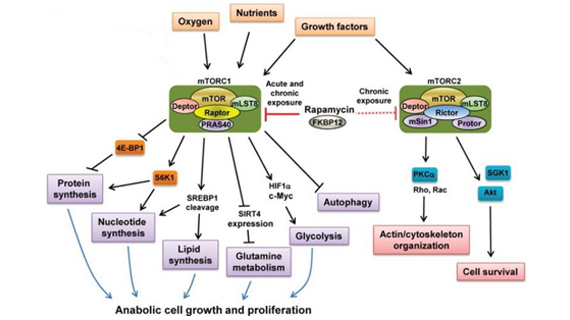Anticancer diet
Anticancer diet
Nutrition of the cancer patient is an important part of the medical and supportive care that is necessary if we really want to offer the best to our patient. Nutrition plays an important role in the diversion of the cell in the direction of neoplastic disease.
Eating habits that constantly stimulate the enzyme system mTOR (C1 & C2) with information of "abundance" push the cell in the direction of "expansion-growth-proliferation", ie in biological behavior that, in the morbid dimension, characterizes cancer. When cancer settles, dietary adjustment is not enough to stop it, but it is necessary for the successful outcome of all other therapeutic measures. mTORC1 pathway
Eating habits that are good for cancer patients are very different from the usual healthy eating instructions. Cancer patients and their families need advice on what foods to eat and what to avoid.
In the context of personalized oncology, our patients are provided with comprehensive and personalized nutritional plans and supplements (eg epigenetic aids, cannabotherapy, etc.) that help them absorb the nutrients they need to maintain their body weight and strength, stay healthy. of the body and maintain a healthy intestinal microbiome, while at the same time not to facilitate the nutrition of cancer cells, but also, most importantly, not to stimulate tumor production growth factors.

The dominant position of mTOR (C1, C2) in the utilization of “signals” of nutritional abundance and growth factors (eg insulin, IGF, etc.) for the benefit of volume
Why in Personalized Oncology?
With personalization in oncology we are able to revive the patient's hope.
While we do not despise the therapeutic means of conventional oncology, on the contrary, we enrich the treatment....
More

